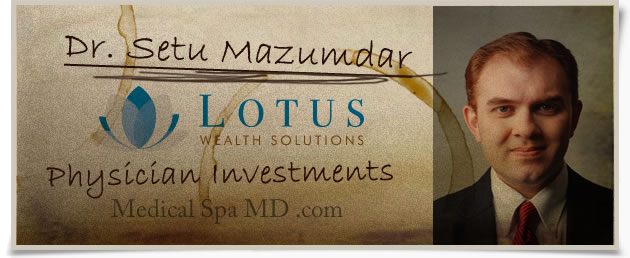From the Medical Board of California:
Due to an influx of calls to the board regarding who may perform what type of medical / cosmetic procedure and where, the following frequently asked questions and responses are provided for informational purposes and as a reminder. This is a reprint and update to an article published in the October 2002 Action Report.
Who may use Lasers or Intense Pulsed Light devices to remove hair, spider veins, and tatoos?
Physicians may use Lasers or Intense Pulsed Light devices. In addition, Physician Assistants and Registered Nurses (not Licensed Vocational Nurses) may perform these treatments under a physician's supervision. Unlicensed Medical Assistants, Licensed Vocational Nurses, Cosmetologists, Electrologists, or Estheticians may not legally perform these treatments under any circumstance, nor may Registered Nurses or Physician Assistants perform them independently, without supervision.
Who may inject Botox?
Physicians may inject Botox, or they may direct Registered Nurses, Licensed Vocational Nurses, or Physicians Assistants to perform the injection under their supervision. No unlicensed persons, such as Medical Assistants, may inject Botox.
I've been approached by a nurse to be her 'sponsoring physician' for her laser and Botox practice; would that be legal?
No. There is no such thing as a 'sponsoring physician'. Nurses may not, under California law, employ or contract with a physician for supervision. A nurse may not have a private practice with no actual supervision. While the laws governing nursing recognize "the existence of overlapping functions between physicians and registered nurses" and permit "additional sharing of functions within organized health care systems that provide for collaboration between physicians and registered nurses" (Business and Professions Code section 2725), nurses may only perform medical functions under "standardized procedures." The board does not believe this allows a nurse to have a private medical cosmetic practice without physician supervision.
I've been asked by a layperson to serve as a "Medical Director" for a "medi-spa" that provides laser and other cosmetic medical services; would that be legal?
No. No one who cannot legally practice medicine can offer or provide medical services (Business and Professions Code section 2052). A physician contracting with or acting as an employee of a lay-owned business would be aiding and abetting the unlicensed practice of medicine (Business and Professions Code sections 2264, 2286, and 2400). To offer or provide these services, the business must be a physician-owned medical practice or a professional medical corporation with a physician being the majority shareholder.
I see these ads for "Botox Parties" and think that it has to be illegal. Is it?
The law does not restrict where Botox treatments may be performed, as long as they are performed by a physician or by a registered nurse, licensed vocational nurse, or physicians assistant under a physician's supervision.
Who may perform microdermabrasion?
It depends. If it's a cosmetic treatment, that is to say it only affects the outermost layer of the skin or the stratum corneum, then a licensed cosmetician or esthetician may perform the treatment. If it's a medical treatment, that is to say it penetrates to deeper levels of the epidermis, then it must be performed by a physician, or by a registered nurse or physicians assistant under supervision. Treatments to remove scarring, blemishes, or wrinkles would be considered a medical treatment. Unlicensed personnel, including medical assistants, may not perform any type of microdermabrasion.
I would like to provide non-medical dermabrasion, and hire an esthetician to perform that and also cosmetic facial and skin treatments. What do I need to do?
It is legal for physicians to hire licensed cosmetologists or estheticians to perform cosmetology services, if they have obtained a facility permit from the Bureau of Barbering & Cosmetoloty. All licensed cosmetologists, including estheticians, must perform their services in a facility with a permit.
Why can't I use a medical assistant instead of a nurse?
Medical assistants are not licensed professionals. While doctors have become accustomed to their assistance in medical office practices, medical assistants are not required to have any degree, nor do they have to pass an examination or be licensed. For that reason, the law only allows them to perform technical supportive services as described in sections 2069-2071 of the Business and Professions Code, and Title 16, California Code of Regulations, sections 1366-1366.4.
What is the penalty if I get caught using or helping an unlicensed person to perform medical treatments?
The law provides a number of sanctions, ranging from license discipline to criminal prosecution, for aiding and abetting the unlicensed practice of medicine. Physicians could be charged with aiding and abetting unlicensed practice, and the employee could be charged with the unlicensed practice of medicine.
I understand that all of these practices may be illegal, but I see advertisements all the time for these kinds of illegal practices. What should I do?
You may file a complaint with the Medical Board. To do so, please send the advertisement, the publication name and date, and your address and telephone number where you may be reached, to our Central Complaint Unit at 1426 Howe Avenue, Suite 54, Sacramento, CA 95825. The board will contact the business, inform them of the law, and direct them to cease any illegal practice. If it is simply the advertisement that is misleading, they will be directed to change or clarify the ad.
It is impossible to cover all of the relevant legal issues in a short article, and these questions and answers are not a substitute for professional legal advice. Physicians may want to consult with their attorneys of malpractice carriers about the use of their office personnel. In addition, the board has a number of written materials with more thorough information on this subject. There are legal opinions on the use of lasers and dermabrasion, materials outlining the legal limitations on use of medical assistants, as well as the actual statutes and regulations. To request any of these documents, please contact the Medical Board of California, 1426 Howe Ave., Suite 92, Sacramento, CA 95825, or call (916) 263-2389.










